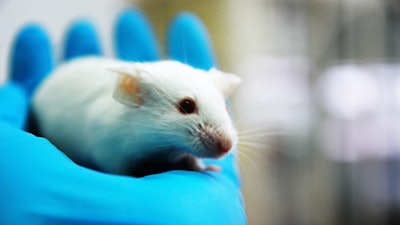
Resident concerns about polluted groundwater aren't exactly unusual, but they generally occur near industrial sites — not Ivy League universities.
But the Associated Press reports that residents of Hanover, N.H., are worried that small animals used in experiments at Dartmouth College contributed to contaminated well water decades later.
Richard and Debbie Higgins blame a variety of health problems on drinking water contaminated by animal carcasses dumped in Rennie Farm, where the college disposed of animals that were used in "tracer experiments" from the 1960s until the late 1970s.
Tracer experiments introduce radioactive compounds into animals in order to view how the compounds move through their systems.
Six years ago, Dartmouth removed 40 tons of debris from the site as part of a cleanup effort -- and uncovered evidence of low-level radioactive material and other hazardous waste. At least one chemical, 1,4-dioxane, leaked into the groundwater supply, including the Higgins' well across the street from the field.
The chemical, a suspected carcinogen, is linked to eye, nose and throat irritation and to liver and kidney damage following long-term exposure. The couple blamed rashes, dizziness and hair and skin loss on contaminated drinking water, and the college now supplies them with bottled water for cooking and drinking.
Other neighbors, meanwhile, are worried that the contamination could migrate to their wells, which could jeopardize their health and erode property values.
Some alleged that Dartmouth should have warned residents about the danger earlier. Dartmouth officials rejected those claims and noted that no additional wells showed evidence of contamination after testing more than 100 others.
This month, a new multi-million dollar system to capture and clean contaminated water will begin operating, but reintroducing treated water could take years.
"We are committed to protecting the health of our neighbors, addressing their concerns, and communicating regularly and openly with them about the project," Dartmouth spokeswoman Diana Lawrence told the AP.






















